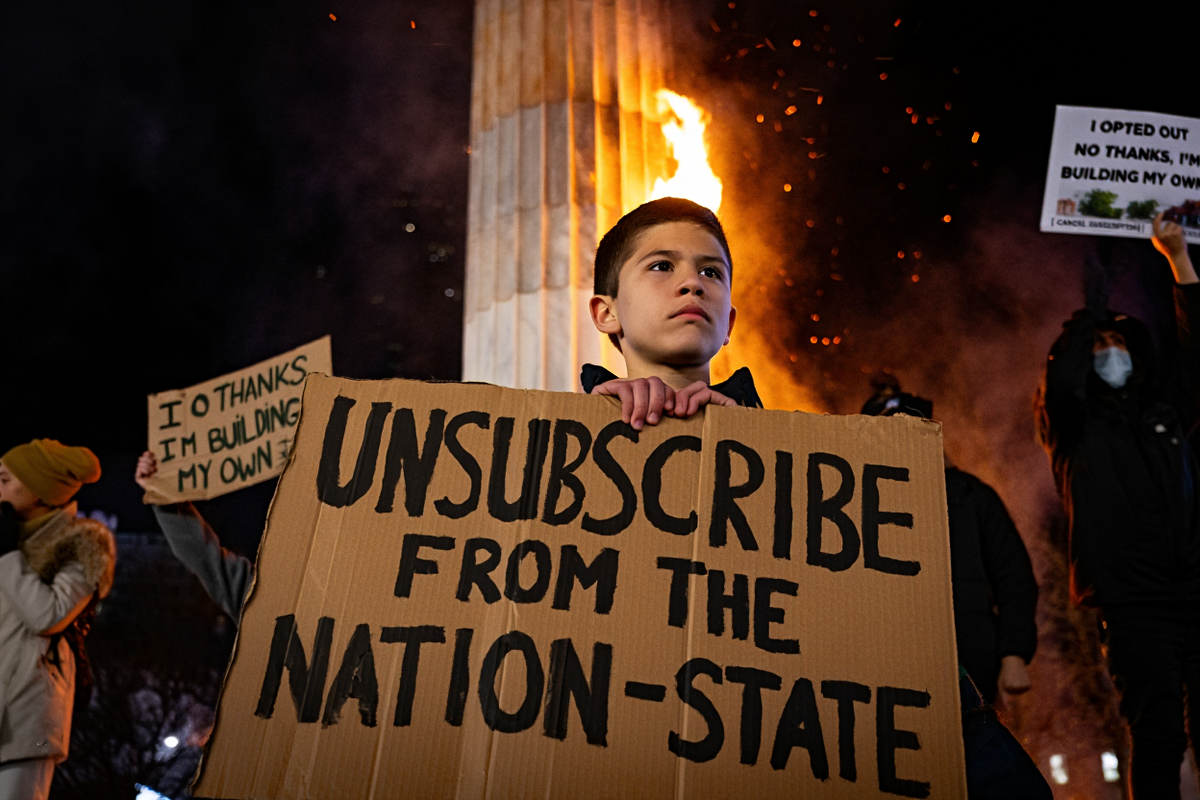The End of the Nation-State: A Soft Collapse or a Great Reset?

For centuries, the nation-state was the ultimate container of human life.
It told you who you were. It gave you a flag, a language, a currency, and a story. It declared wars, issued passports, built roads, educated your children, and buried your dead. In exchange for your loyalty, it promised order and belonging.
But today, something is unraveling.
Not with fire. Not with revolution.
But with irrelevance.
Like medieval monarchies before it, the nation-state is not being overthrown. It is being outgrown.
The Cracks in the Foundation
The symptoms are everywhere, yet often misread.
- Governments cannot balance their budgets, control their borders, or manage public trust.
- National currencies are being bypassed by decentralized alternatives.
- Public institutions — from schools to courts to parliaments — are viewed with skepticism, if not contempt.
- Citizens feel alienated, not because they are disloyal, but because they are disconnected.
The state was built for an industrial age: centralized, hierarchical, and slow.
But we now live in a world that is networked, borderless, and fast.
The hardware has not kept up with the software.
Exit Without Violence
Historically, when empires collapsed, they did so violently.
But the decline of the nation-state is more like a quiet fork than a civil war.
People are not marching on government buildings.
They are logging off and building parallel systems.
They use crypto instead of fiat.
They learn online instead of attending state schools.
They solve disputes in private forums or smart contracts.
They incorporate offshore, live abroad, and vote with their feet.
These are not rebels.
They are early adopters of post-state life.
What Replaces It?
No single alternative has emerged — and that may be the point.
We are moving from a world of monopolies to modularity, where individuals stack together their own systems of sovereignty.
• Bitcoin replaces the central bank.
• DAOs replace political parties.
• e-Residency replaces national identity.
• Charter cities replace capitals.
• Protocol villages replace parliaments.
Instead of a single flag, you carry a stack.
Your money, identity, community, and law are now portable and programmable.
A Soft Collapse or a Great Reset?
It’s tempting to call this the end. But endings are just the stories we tell when we don’t yet know what’s next.
The truth is that the nation-state is not being destroyed. It is being deprecated.
In the same way the horse was not outlawed — it was replaced by the car — the state may not disappear. But it may cease to be the primary operating system of civilization.
Some will resist this transition. Others will try to reboot the old world under new branding — a “Great Reset,” as if centralization can be rebranded into relevance.
But the deeper truth may be simpler:
We are leaving without asking for permission.
Beyond the State
Humans lived for thousands of years without nations.
And we may live thousands more beyond them.
The question is not whether the state will fall.
The question is what you will build in its place.
Because the future of governance will not be inherited.
It will be assembled — fork by fork, stack by stack, layer by layer.
And the next civilization may not have a capital city.
It may have a GitHub repo.




